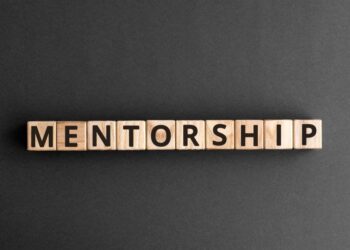In today’s dynamic job market, a career is no longer a straight path but a winding journey with multiple turns and new destinations. The concept of working for one company your entire life is a relic of the past. As technology, industries, and personal aspirations evolve, so too does the need for individuals to adapt and reinvent themselves. Navigating a career change can be daunting, filled with uncertainty and self-doubt, yet it also presents an incredible opportunity for growth, fulfillment, and a new sense of purpose. This comprehensive guide will explore the motivations behind career transitions, outline a strategic approach to making a successful move, and offer practical advice for thriving in your new role.
The average person changes jobs multiple times throughout their professional life, and a significant number of these changes involve a shift to a new industry or role entirely. This trend is driven by a variety of factors, from technological disruption to a growing desire for work-life balance and personal satisfaction. Whether you’re a recent graduate feeling disillusioned with your chosen field, a mid-career professional seeking a more meaningful challenge, or someone re-entering the workforce, the principles of a successful career change remain the same. It’s about introspection, preparation, and proactive execution.
A. Understanding Your Why: The Foundation of Change
Before you can chart a new course, you must first understand the reasons you want to leave your current one. A successful career change isn’t just about escaping a bad situation; it’s about moving toward a better one. Taking the time for deep introspection is the most critical step in the entire process.
A. Dissatisfaction with Current Role: Is your work no longer challenging, or have you hit a ceiling for growth? Are you bored with the daily tasks, or do you feel a lack of purpose? Pinpointing the specific sources of your dissatisfaction is crucial. It could be the company culture, the nature of the work itself, or a lack of alignment with your personal values. Acknowledge these feelings without judgment, as they are a powerful motivator for change.
B. Seeking Greater Fulfillment: Many people seek a career change not because they are unhappy, but because they are hungry for more. This might involve a desire to work in a field that aligns with a personal passion, to make a greater social impact, or to find a role that offers a better work-life balance. This motivation is often more sustainable and leads to more satisfying outcomes.
C. Responding to Market Trends: Sometimes, a career change is a strategic necessity. An industry might be in decline, or new technologies could be making your skills obsolete. Proactively transitioning to a growing field or a role in high demand is a smart move that can ensure long-term career stability and financial security. This requires staying informed about broader economic and technological shifts.
D. Personal Life Events: Major life changes, such as having a child, caring for a family member, or relocating, can necessitate a career transition. These events often prompt a re-evaluation of priorities, leading to a search for a job with more flexibility, a shorter commute, or a different schedule. Embracing these changes and adapting your career accordingly can lead to a more harmonious life.

B. The Strategic Playbook: Planning Your Transition
Once you understand your motivation, it’s time to create a strategic plan. A career change without a roadmap can be a stressful and unproductive endeavor. This systematic approach will help you move from contemplation to action.
A. Assess Your Transferable Skills: Don’t underestimate the value of your existing experience. Many skills are not tied to a specific industry but are universal. Think about your communication skills, problem-solving abilities, project management experience, leadership qualities, and technological proficiency. These “soft skills” are highly valued in almost every sector. Make a detailed list and highlight how they can be applied to your target career.
B. Conduct Thorough Research: This is your due diligence. Identify potential new careers or industries that align with your interests and skills. Use online resources, industry reports, and professional networks to learn about the day-to-day realities of these jobs. What are the typical career paths? What is the salary range? What skills or certifications are required? This research will help you create a realistic and informed target list.
C. Upskill and Fill Gaps: Once you have identified the skills you need, create a plan to acquire them. This might involve taking online courses, earning a certification, attending a bootcamp, or even pursuing a new degree. Platforms like Coursera, edX, and Udemy offer a wealth of knowledge, and many industry associations provide specialized training. Investing in your education is an investment in your future.
D. Networking: The Secret Weapon: The majority of jobs are found through networking, not online applications. Reach out to people working in your target industry. Conduct informational interviews to learn about their experiences and get advice. Attend industry events, join professional groups on LinkedIn, and connect with alumni from your school. Networking is about building genuine relationships, not just asking for a job.
E. Craft Your New Narrative: Your resume and cover letter need to tell a new story—one that highlights your transferable skills and explains your passion for the new field. Instead of simply listing your old responsibilities, focus on your accomplishments and how they prepared you for this new role. Your narrative should be compelling and show that your career change is a deliberate and well-thought-out decision, not a whim.
C. Executing the Move and Thriving in Your New Role
The final phase involves putting your plan into action and successfully integrating into your new career. This period can be challenging, but with the right mindset, you can set yourself up for long-term success.
A. Job Hunting with Confidence: Be prepared for setbacks and rejections. Job hunting is a numbers game, and a career change can make it even more challenging. Stay positive, be persistent, and don’t be afraid to adjust your strategy. Tailor each application to the specific role and company, and follow up professionally after interviews.
B. Negotiating Your Compensation: Don’t let your inexperience in the new field undervalue you. Your prior experience, even in a different industry, brings a unique perspective and a valuable skill set. Research salary benchmarks for the new role and be prepared to articulate the value you bring to the table. Negotiate with confidence, focusing on the total compensation package, including benefits, bonuses, and professional development opportunities.

C. Embracing the Learning Curve: Your first few months in a new career will be a whirlwind of new information, new people, and new processes. Be humble, be curious, and be a sponge. Ask questions, seek feedback, and don’t be afraid to admit what you don’t know. Your eagerness to learn will impress your new colleagues and accelerate your integration.
D. Building New Connections: Just as you networked to get the job, you need to network to succeed in it. Get to know your team members, your manager, and colleagues in other departments. Find a mentor who can guide you through the new company culture and offer valuable advice. Building strong internal relationships is crucial for your long-term success and happiness.
E. Managing Your Expectations: No job is perfect, and a career change won’t solve all your problems. There will be good days and bad days. Stay focused on your “why” and remember the reasons you made this change in the first place. Celebrate small victories, learn from your mistakes, and give yourself grace during the transition.
In conclusion, a career change is a significant life event that requires careful planning, courage, and resilience. By understanding your motivations, creating a strategic plan, and proactively executing your transition, you can successfully navigate this new chapter and build a career that is not only financially rewarding but also personally fulfilling. The future of work is about adaptability and continuous learning. . Your next career adventure is waiting for you.












